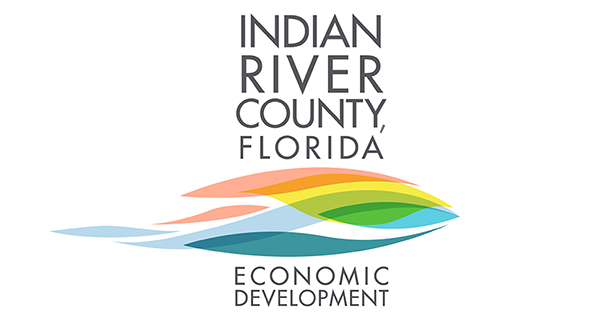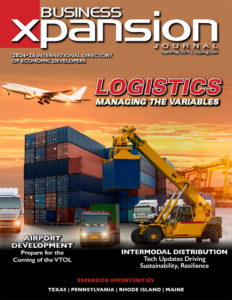
A Q & A with Eyal Eliezer, Head of Strategy, Invest in Israel
24 May, 2017
What are the top three unique economic advantages offered by Israel that create an attractive business climate for any multinational company to come to Israel and set up shop?
Innovation: More than 285 multinational companies have already set up shop here, establishing over 300 R&D centers – for many of these corporations, their only such center outside their home country. Global giants including Microsoft, Motorola, Google, Apple, Facebook, Intel, HP, EMC, Siemens, GE, IBM, GM, Deutsche Telekom, and Cisco all have such centers in Israel, viewing the country as an international hub for excellence and innovation.
These R&D centers were established here mainly because our country is renowned for its world-class talent, whose innovative spirit, and can-do, never-take-no-for-an-answer attitude have helped many of these multinationals develop breakthrough innovations and for some, even their flagship products. Israel’s extremely talented workforce – with the highest concentration of PhD’s and engineers per capita in the world – is a foundation of our R&D success.
Israel’s reputation as a hub of innovation – the “Startup Nation” with more startups per capita anywhere in the world outside of Silicon Valley – is another key factor attracting such significant levels of investment from around the world. From 2005-2015, Israeli hi-tech companies raised close to $24 billion dollars.
So, innovation is a major hook. But it works in tandem with other significant factors, namely:
Robust economic performance: In spite of global economic volatility over the last decade, Israel’s economy saw consistent GDP growth above OECD average, and in 2016 the growth rate is 4%. Additionally, Israel’s unemployment rate is below 5% – among the world’s lowest.
Government support and openness: the government of Israel is keen about attracting international investment, offering attractive tax breaks and incentives helping offset expenses in R&D and wages. (See below in more detail)
Describe the mission of the Industrial Cooperation and Foreign Investment Authority and how it works with the Israeli government to accommodate the needs of foreign investors and businesses wanting to come to Israel.
The Foreign Investments and Industrial Cooperation Authority, also known as Invest in Israel Authority offers end-to-end services for interested parties. We are a ‘one-stop-shop’ for foreign investment in Israel. If you are an investor or multinational company, we will engage with you on conferences abroad and in Israel and supply information about the Israeli ecosystem, escort you during your visit, answer follow-up questions, help you navigate the Israeli government and regulations, and much more. In addition, we will be here to assist you even after you have made your investment to ensure that you have the best Invest in Israel experience.
Particularly, following a strategic analysis, we identified that the need for a direct contact with the government is especially important in the realm of FDI in manufacturing (Israel merits in the field were detailed above), where approvals with regards to incentives and regulation are especially important. As a result, we developed a specialty in this field and we will be happy to offer these services.
Israel’s strategic position as a business partner in the world economy means that the country has to develop ways to work with businesses from all over the world. What sort of trade agreements have been used, and what other bilateral agreements are being developed to assist other leading global economies?
Israel’s strategic geographic location and highly stable economy have led to many types of FTAs and other international agreements with many different countries and unions all across the globe. Israel has signed 11 FTAs covering 44 countries, including the US, the EU, the Mercosur Union, the EFTA Union, Turkey and more. In addition, Israel is currently developing other bilateral agreements with leading global economies such as China, South Korea, India and more.
Israel is also a WTO and OECD member and as such is committed to trade liberalization. As a result, it signed multilateral agreements such as ITA (Information Technology Agreement), GPA (Governmental Procurement Agreement), GATT & GATS (General Agreement on Tariffs and Trade & General Agreement on Trade and Services) and EGA (Environmental Goods Agreement).
Israel has signed several binational programs, funds and cooperation agreements providing support for R&D companies that carry out joint R&D projects with foreign companies. Israel has such cooperation agreements with more than 60 countries and regions including multiple agreements with the US, EU, Canada, Japan, India, China and many more all over the world.
There are already multi-national advanced manufacturing companies in Israel, chief among them Intel, Teva and Hewlett Packard. The automotive sector is also strong in the country. What lessons have been learned about working with these companies once they settled in Israel, and what challenges/opportunities has Invest in Israel identified and addressed over the last five years with these companies?
Our authority in its current form is relatively new, not more than two years, so I can speak more about the future than about the past. We believe our main responsibility lies not only in attracting the best investors and entrepreneurs to Israel, but also in making sure that they continue to receive first class attention and service throughout their time in Israel. To do this, we will open a new customer service center for foreign investors – a “hotline” to assist them with any challenges that may arise. As part of this effort we are mapping challenges that companies have vis-à-vis working with government entities and establishing “green lanes” with these entities, so we can help foreign investors working with them.
Nevertheless, as part of this process we have already been able to assist advanced manufacturing companies on several occasions. Obviously, due to confidentiality I can’t disclose specific details of companies, but I can say that we have already assisted in issues such as visas to Israel, customs, land allocation and claiming government incentives.
Discuss Israel’s “innovation box” strategy and how it is designed to increase the value-creating footprint in Israel for companies doing business in the country.
The innovation box is a response to The BEPS (Base Erosion and Profit Shifting) project, a G20-led initiative that was designed to address government concerns about the potential for MNCs to locate profits where they are subject to favorable tax treatment. The essence of guidelines on this issue states that intercompany remuneration of the IP owner should be in line with the locations of its actual functions, assets and risk profile.
The Israeli government believes that this regime change is an important opportunity for multinationals operating in Israel, and is determined to take the necessary steps to facilitate this opportunity. Following this determination, Israel has launched a new IP tax regime, as part of the 2017-2018 state budget. Under the proposed regime, 6% corporate income tax rate and 4% withholding tax on dividends are expected to apply to qualifying companies with consolidated revenues of over ILS10b (approx. U.S.$2.5b). These companies will be given commitment to stability of the rates for at least 10 years, if certain conditions are met.
Other qualifying companies would be subject to 7.5-12% corporate income tax (the lower rates for companies set up in Development regions) and 4% dividend withholding tax.
We believe that the combination of the new Innovation box with the already thriving innovation ecosystem is a very strong value proposition for multinationals – both for those who already have a presence in Israel and those who don’t. The opportunity lies in increasing the value-creating footprint in Israel, alongside shifting IP registration to Israel. Global companies following this path will allow themselves both to include Israel’s innovation advantage within their enterprise, as well as to enjoy an attractive way of adhering to the new tax regime.
One of the biggest concerns for any business involved in advanced manufacturing is finding and working with a dedicated workforce pipeline. This sector requires a well-educated workforce, often with master’s degree level of education. Discuss the educated workforce in Israel that supports advanced manufacturing, any available employment grants, and the role that an educated workforce plays in helping grow an advanced manufacturing enterprise.
According to the recent Global Talent competitiveness Index 2017 by INSEAD, Israel is ranked 3rd globally for Quality of Scientific Institutions, and 6th for High-Level Skills. In 2016, there were about 200,000 students for BA (around 30% of them in STEM-related degrees); about 60,000 students for MA (around 30% of them in STEM-related degrees); about 11,000 students for PhD (50% in STEM-related degrees). So as you can see Israel has a lot to offer in terms of high-end labor for advanced manufacturing.
As to relevant employment grants I’ll offer a short description (full details are available upon request). The Ministry of Economy and Industry operates several aid programs intended to encourage the integration of workers from minority populations, populations with low labor participation rates and populations from National Priority Regions (most of Israel’s southern and Northern regions). The aid is given in the form of subsidizing the wages of new employees for a specific time period. There are a few tracks available in this regard:
Special Populations: Facilitates integration of populations with low rates of participation in the labor force, by subsidy of wages. It is given as a percentage of employee wages (10% – 37.5%), by a particular group, for up to a wage of approximately US $4,000. The rate of the subsidy depends on the social identity of employees (e.g. Ultra-Orthodox, ethnic minorities, individuals with disabilities, single parents) and geographic location, with preference to a combination of both.
Support for high-quality employment in National priorities regions: Facilitates the integration of highly skilled employees exclusively in manufacturing and IT enterprises located in National Priority Regions. This subsidy is given for 4 years with an average annual rate of 25% of the salaries (there are some nuances dependent on the type of activity).
In addition, there are workforce training incentives like:
“On the Job Training” program – The ministry of Economy and Industry offers support for training by an instructor that is selected by the factory:
Employees’ wages participation: Up to approximately 500$ per employee for the period of the training.
Instructor’s wage participation: Up to 750$ per employee for the period of the training.
Length of the supported training should be between one to six months.
The plant must commit to employ the trained employee upon completion of the course.
“Class in factory” program –
The Ministry of Economy and Industry offers full subsidy for a manufacturing plant that hosts a certification program in an industrial vocation for the unemployed.
The plant commits to employ a majority of the students.
Just to add to all of this one of the main reasons that MNC’s moved to Israel for advanced manufacturing is because Israel is a hub for many of the companies R&D centers. The big plus those companies could enjoy is an R&D-manufacturing proximity/feedback advantage, making the production process much more dynamic, enabling a far more efficient “learning by making” process.
To sum up, you could see that Israel has a lot to offer in terms of supporting ecosystem for advanced manufacturing.
Like many economic development organizations across the world, Israel offers a suite of incentives for businesses to consider – land acquisition assistance, tax breaks and others. Name three that are highest on the list in terms of how often they are used, and why businesses seem to focus on these three.
Tax breaks: Competitive industrial enterprises that are listed in Israel are entitled to preferred corporate tax rates, as follows: Companies located in National Priority Regions (most of Israel’s southern and Northern regions) could be entitled to a 9% reduced corporate tax rate. Companies located in other areas can enjoy a 16% corporate tax. In both areas, additional dividend tax reductions might also apply. This incentive is commonly used because it is both attractive and also easy to claim – once you meet the threshold conditions, you can get without further discretion.
Capital Grants: Industrial companies located in National Priority Regions (most of Israel’s southern and Northern regions) can receive grants of up to 30% of the approved investment, covering investments in fixed assets (equipment, buildings, furniture, etc.) over a period of 5 years. This incentive is commonly used because it gives a generous participation in the capital costs of capital intensive activities such as manufacturing.
R&D grants: The R&D fund, operated by the Israel Innovation Authority, allocates around 250$MN every year for high-tech activity for companies in various stages and sectors. The attractiveness of this fund stems from the fact that royalties are being paid only if the product/company succeeds.
Many startups want to know about available venture capital funds which can be, in fact, the most crucial factor in their decision-making process about locating a facility in an area. What sort of funds are available from Israel-based venture capital firms to startups in Israel, and what sort of ongoing research and development support can a startup expect to have over the first five-year cycle of its business operations?
Israel is home to the activity of hundreds of Israeli and foreign VC funds, corporate VCs and angel investors. This is why Israel has the highest VC funds per capita in the world after Silicon Valley, with almost 5$BN in high-tech capital raising just on 2016 – double the number in 2013. In addition, there are hundreds of accelerators and incubators that also give the start-ups training and the necessary networking.
In addition to this private sector involvement, the government, through the Israel Innovation Authority supports start-ups with a myriad of programs, built around the stages in the life-cycle of start-ups. These include the R&D fund which allocates around 250$MN every year and also incubation programs and programs for collaboration of start-ups with multinationals.
Many countries around the world, especially the U.S., have strong agribusiness sectors. What is the key subsector of agri-business in Israel (seed production, crop growing, meat processing, Ag technology development)? What is the anticipated growth of this sector?
Israel is among the leading countries in agricultural technology with 280 related companies and 200 exporters of agritech services and products. The export turnover of the Israeli agritech sector is estimated at US$4bn a year. Approximately US$90m has been invested annually on average over the past few years in research and development, making Israel a world leader in allocation of funds for R&D in the agritech sector.
The biggest achievement of Israel’s dairy farming industry is the annual milk production of the Israeli milking cow, which is considered as the highest in the world.
Israeli farmers grow an average of 300 tons of tomatoes per hectare per season in greenhouses, which is four times more than those grown in open fields.
Exports account for 80% of the Israeli irrigation industry production, which represent 30% of the global drip irrigation market. An important example in this regard is the Israeli Netafim, which is a global leader in this market. With 28 subsidiaries, 17 manufacturing plants – including Israel of course – and 4,300 employees worldwide, Netafim delivers innovative solutions to growers of all sizes, from smallholders to large-scale agricultural producers, in over 110 countries. Founded in 1965, Netafim pioneered the drip revolution, creating a paradigm shift toward low-flow agricultural irrigation.
An Israeli fruit and vegetable rinsing appliance reduces fresh citrus losses from 15% to less than two percent, and by this, saves more than US$70m per year for Israeli citrus exporters.
40% of European tomato greenhouses use seeds of a long shelf-life hybrid that was developed and first produced in Israel.
Real estate availability is critical for some information technologies companies (such as data centers) and other enterprises that require not only large acreages of land but secure access to power, water, sewer and transportation infrastructure. How do kilowatt/hour electricity rates in Israel compare to other countries, such as the U.S., and what are the future plans to enhance or upgrade the infrastructure for shipping freight?
According to the latest data we have (research from 2013) Israel’s electricity rates for industry are on the middle ground between the US and Europe: it is on average 0.12$/Kilowatt per hour, while for the EU it is 0.15-0.19$/Kilowatt per hour (depending on size of consumption), and 0.08$/Kilowatt per hour in the US.
As to the shipping infrastructure: 98% of Israel’s import and export cargo goes through its seaports. As Israel’s economy continues to grow and in order to increase competition between ports, the port system will have to grow and improve—container traffic is expected to double every 10 years. The government has directed the Israel Ports Development & Assets Company Ltd. (IPC) to develop ports in the cities of Ashdod and Haifa.
In 2007, the IPC laid out a 50 year “strategic development master plan.” One of the primary goals is to involve the private sector and stimulate a competitive environment. The government has already approved the first phase: the design of a new container terminal at each port. Over the coming years, there will be many more projects. The IPC hopes to integrate hi-tech into Israel’s ports through some of the following methods.
State-of-the-Art Port Gates—include the latest technology to automatically identify and verify whether entrance and exit from the port is authorized.
TOS – Computerized Terminal Operations System—provide the port with new planning and management tools to improve utilization of berths, stacking areas, equipment and manpower.
Israel Maritime Community Supply Chain Management—a national effort to re-engineer work processes and procedures through the use of standard EDI messages between members of the maritime community.
National Port Data Bank—a national data bank will be set up to provide a national information database on port sector traffic and activities.
Eyal Eliezer took a major role in the formation of the Authority for Industrial Cooperation and Promotion of Foreign Investments, and established the department of Strategy & Marketing. Invest in Israel is a one-stop-shop for foreign investments with in-depth knowledge of the Israeli ecosystem. The department is responsible for the aspects of data analysis, economic research, branding and marketing as well as government relations for foreign investors. Formerly, Eyal served as an economic adviser to several Director-Generals and Ministers at government offices, specializing in public-sector project management.
For more information:
Email: InvestInIsrael@economy.gov.il
Website: www.investinisrael.gov.il
Phone: +97226662410
Related Posts
-

MAINE: Yankee Ingenuity
-

ARKANSAS: When You’re in Arkansas, You’re in Good Company
-

TEXAS: Made in Texas
-

MISSOURI: Why Missouri?
-

Explore Development Opportunities in Massachusetts
-

Cape Fear Region, North Carolina
-

Calvert County, Maryland
-

St. Tammany Economic Development Foundation
-

Town of Charlton, Massachusetts
-

Indian River County









